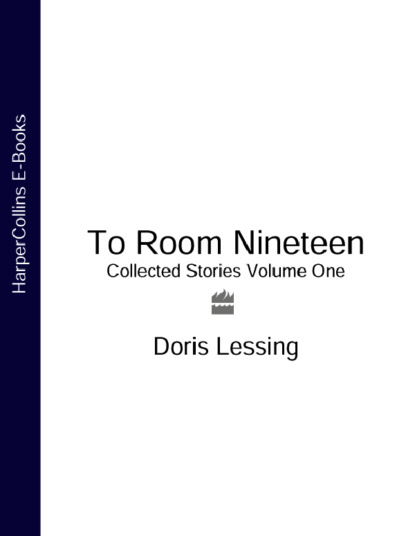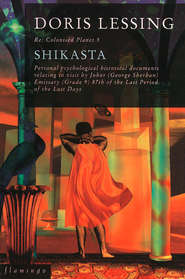По всем вопросам обращайтесь на: info@litportal.ru
(©) 2003-2024.
✖
To Room Nineteen: Collected Stories Volume One
Автор
Год написания книги
2019
Настройки чтения
Размер шрифта
Высота строк
Поля
But Herr Scholtz, for reasons of his own, was speaking his own language, and rather too loudly, one might have thought. Captain Forster looked at him, wondering, and was attentive.
‘It is particularly pleasant for me to come to this resort,’ remarked Herr Scholtz in that loud voice, as if to an inner listener, who was rather deaf, ‘because of the happy memories I have of it.’
‘Really?’ inquired Captain Forster, listening with nervous attention. Herr Scholtz, however, was speaking very slowly, as if out of consideration for him.
‘Yes,’ said Herr Scholtz. ‘Of course during the war it was out of bounds for both of us, but now …’
The Captain suddenly interrupted: ‘Actually I’m very fond of it myself. I come here every year it is possible.’
Herr Scholtz inclined his head, admitting that Captain Forster’s equal right to it was incontestable, and continued, ‘I associate with it the most charming of my memories – perhaps you would care to …’
‘But certainly,’ agreed Captain Forster hastily. He glanced involuntarily towards Rosa – Herr Scholtz was speaking with his eyes on Rosa’s back. Rosa was no longer humming. Captain Forster took in the situation and immediately coloured. He glanced protestingly towards Herr Scholtz. But it was too late.
‘I was eighteen,’ said Herr Scholtz very loudly. ‘Eighteen.’ He paused, and for a moment it was possible to resurrect, in the light of his rueful reminiscent smile, the delightful, ingenuous bouncing youth he had certainly been at eighteen. ‘My parents allowed me, for the first time, to go alone for a vacation. It was against my mother’s wishes; but my father on the other hand …’
Here Captain Forster necessarily smiled, in acknowledgment of that international phenomenon, the sweet jealousy of mothers.
‘And here I was, for a ten days’ vacation, all by myself – imagine it!’
Captain Forster obligingly imagined it, but almost at once interrupted: ‘Odd, but I had the same experience. Only I was twenty-five.’
Herr Scholtz exclaimed: ‘Twenty-five!’ He cut himself short, covered his surprise, and shrugged as if to say: Well, one must make allowances. He at once continued to Rosa’s listening back. ‘I was in this very hotel. Winter. A winter vacation. There was a woman …’ He paused, smiling, ‘How can I describe her?’
But the Captain, it seemed, was not prepared to assist. He was frowning uncomfortably towards Rosa. His expression said quite clearly: Really, must you?
Herr Scholtz appeared not to notice it. ‘I was, even in those days, not backward – you understand?’ The Captain made a movement of his shoulders which suggested that to be forward at eighteen was not a matter for congratulation, whereas at twenty-five …
‘She was beautiful – beautiful,’ continued Herr Scholtz with enthusiasm. ‘And she was obviously rich, a woman of the world; and her clothes …’
‘Quite,’ said the Captain.
‘She was alone. She told me she was here for her health. Her husband unfortunately could not get away, for reasons of business. And I, too, was alone.’
‘Quite,’ said the Captain.
‘Even at that age I was not too surprised at the turn of events. A woman of thirty … a husband so much older than herself … and she was beautiful … and intelligent … Ah, but she was magnificent!’ He almost shouted this, and drained his glass reminiscently towards Rosa’s back. ‘Ah …’ he breathed gustily. ‘And now I must tell you. All that was good enough, but now there is even better. Listen. A week passed. And what a week! I loved her as I never loved anyone …’
‘Quite,’ said the Captain, fidgeting.
But Herr Scholtz swept on. ‘And then one morning I wake, and I am alone.’ Herr Scholtz shrugged and groaned.
The Captain observed that Herr Scholtz was being carried away by the spirit of his own enjoyment. This tale was by now only half for the benefit of Rosa. That rich dramatic groan – Herr Scholtz might as well be in the theatre, thought the Captain uncomfortably.
‘But there was a letter, and when I read it …’
‘A letter?’ interrupted the Captain suddenly.
‘Yes, a letter. She thanked me so that the tears came into my eyes. I wept.’
One could have sworn that the sentimental German eyes swam with tears, and Captain Forster looked away. With eyes averted he asked nervously, ‘What was in the letter?’
‘She said how much she hated her husband. She had married him against her will – to please her parents. In those days, this thing happened. And she had sworn a vow to herself never to have his child. But she wanted a child …
‘What?’ exclaimed the Captain. He was leaning forward over the table now, intent on every syllable.
This emotion seemed unwelcome to Herr Scholtz, who said blandly, ‘Yes, that was how it was. That was my good fortune, my friend.’
‘When was that?’ inquired the Captain hungrily.
‘I beg your pardon?’
‘When was it? What year?’
‘What year? Does it matter? She told me she had arranged this little holiday on grounds of her bad health, so that she might come by herself to find the man she wanted as the father of her child. She had chosen me. I was her choice. And now she thanked me and was returning to her husband.’ Herr Scholtz stopped, in triumph, and looked at Rosa. Rosa did not move. She could not possibly have failed to hear every word. Then he looked at the Captain. But the Captain’s face was scarlet, and very agitated.
‘What was her name?’ barked the Captain.
‘Her name?’ Herr Scholtz paused. ‘Well, she would clearly have used a false name?’ he inquired. As the Captain did not respond, he said firmly: ‘That is surely obvious, my friend. And I did not know her address.’ Herr Scholtz took a slow sip of his wine, then another. He regarded the Captain for a moment thoughtfully, as if wondering whether he could be trusted to behave according to the rules, and then continued: ‘I ran to the hotel manager – no, there was no information. The lady had left unexpectedly, early that morning. No address. I was frantic. You can imagine. I wanted to rush after her, find her, kill her husband, marry her!’ Herr Scholtz laughed in amused, regretful indulgence at the follies of youth.
‘You must remember the year,’ urged the Captain.
‘But my friend …’ began Herr Scholtz after a pause, very annoyed. ‘What can it matter, after all?’
Captain Forster glanced stiffly at Rosa and spoke in English, ‘As it happened, the same thing happened to me.’
‘Here?’ inquired Herr Scholtz politely.
‘Here.’
‘In this valley?’
‘In this hotel.’
‘Well,’ shrugged Herr Scholtz, raising his voice even more, ‘well, women – women you know. At eighteen, of course – and perhaps even at twenty-five –’ Here he nodded indulgently towards his opponent – ‘Even at twenty-five perhaps one takes such things as miracles that happen only to oneself. But at our age …?’
He paused, as if hoping against hope that the Captain might recover his composure.
But the Captain was speechless.
‘I tell you, my friend,’ continued Herr Scholtz, good-humouredly relishing the tale, ‘I tell you, I was crazy; I thought I would go mad. I wanted to shoot myself; I rushed around the streets of every city I happened to be in, looking into every face. I looked at photographs in the papers – actresses, society women; I used to follow a woman I had glimpsed in the street, thinking that perhaps this was she at last. But no,’ said Herr Scholtz dramatically, bringing down his hand on the table, so that his ring clicked again, ‘no, never, never was I successful!’
‘What did she look like?’ asked the Captain agitatedly in English, his anxious eyes searching the by now very irritated eyes of Herr Scholtz.
Herr Scholtz moved his chair back slightly, looked towards Rosa, and said loudly in German: ‘Well, she was beautiful, as I have told you.’ He paused, for thought. ‘And she was an aristocrat.’
‘Yes, yes,’ said the Captain impatiently.
‘She was tall, very slim, with a beautiful body – beautiful! She had that black hair, you know, black, black! And black eyes, and beautiful teeth.’ He added loudly and spitefully towards Rosa: ‘She was not the country bumpkin type, not at all. One has some taste.’











